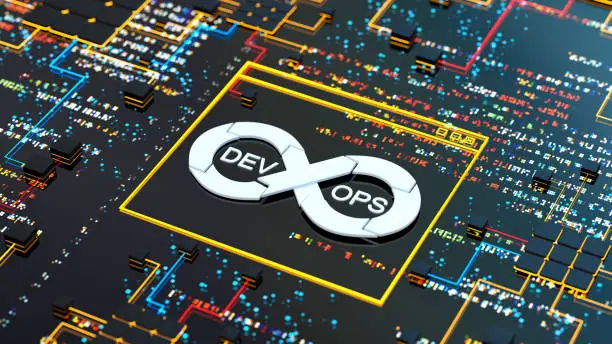Integrating Cybersecurity and DevOps: Key Strategies for Custom Software Development
The digital world never stops evolving – in such a world, it is crucial to create a strategy that assures that your custom software is securely and efficiently developed and delivered to the user. One key solution for the same is the combination of DevOps and cybersecurity services.
More and more businesses are now dependent on custom-made software to ensure the smooth functioning of their business operations. They need to have steady security practices in place along with efficient DevOps solutions. A custom software development company merges these to create DevSecOps to ensure security as a fundamental part of the development process of software.
In this blog, we will dive deep into the key strategies for custom software development by efficiently integrating cybersecurity with DevOps. We will talk in detail about how to automate security processes, how to monitor and test, the importance of secure practices for coding, as well as the importance of the DevSecOps collaboration and how it can help in the development process.
Employing a Mindset to Put Security First
The most basic step in combining the services of a cybersecurity services company and the DevOps pipeline is nurturing a mindset of the importance of security across the organisation. It goes into as simple tasks as trying to change the perception to ensure security becomes an important and inevitable part of the software development lifecycle.
In order to foster this type of mindset, many organisations take the help of training programs to spread awareness amongst developers, operations, and other important stakeholders regarding the importance of security and harm from breaches.
By ensuring that security becomes a critical part of the process of development as well as the culture of the company, it can be ensured that the potential implications are considered. The implementation of the DevSecOps model ensures that security remains a crucial consideration right from the beginning of the process of software development.
Automating Processes for Security

An expert DevOps consultant company will attest to the fact that automation is one of the most key methodologies for DevOps, and is bound to play an equally important role in DevSecOps as well. If an organisation automates their security processes, it can help in the implementation of security controls throughout the process of development comparatively faster, less prone to errors, and more uniform.
This process of automation can be implemented in a number of stages of development, be it at the time of analysing and scanning codes and vulnerabilities, managing configurations and incident responses, and more. The best way to automate security is by utilising the security-as-code practice. This can ensure that these security policies and controls can be implemented throughout the CI/CD pipelines.
Businesses can integrate tools such as static application security testing (SAST), dynamic application security testing (DAST), and interactive application security testing (IAST) in the CI/CD pipelines to ensure that all issues related to security are recognised and solved as soon as possible.
Other than this, a custom software development company can also implement automated configuration tools such as Chef, Puppet, and Ansible to make sure that all security policies are implemented throughout the infrastructure and application environments as they enable consistent application of configurations for security and reduce the chances of misconfigurations that could cause security breaches.
Consistent Tracking and Testing
When it comes to DevSecOps, security becomes an ongoing process rather than a one-time endeavour. This makes consistency in tracking and testing imperative, ensuring that all susceptibilities are recognised and solved as they occur. This also bridges the gap of opportunity for attackers to pose a threat to the software.
A cybersecurity services company can offer such continuous monitoring by utilising advanced tools and techniques to ensure the security of the infrastructure as well as applications throughout the various stages of software development. Consistent testing and tracking can help monitor for vulnerabilities, threats, misconfigurations, and other issues that could potentially jeopardise the integrity of the software.
Businesses can use a number of tools such as Intrusion Detection Systems (IDS), Intrusion Prevention Systems (IPS), and security information and event management (SIEM) systems in order to monitor and solve security issues as they occur.
Along with consistent monitoring, another essential component is ensuring that all security measures are in place and effective and that new susceptibilities are rarely launched during the process of software development. Such consistent testing can be automated, as it enables the integration of security in the CI/CD pipelines. Each time a new code is introduced, this can help ensure its safety.
As there are many threats in the custom software development landscape, having continuous monitoring and testing measures can ensure that organisations stay on top of all threats to ensure that their software is secure throughout its lifespan.
Having Secure Coding Solutions

The importance of having secure coding practices cannot be overstated – they reduce the perils of susceptibilities arising in custom software. Such practices include having clear codes that combat risks of security, making it difficult for attackers to take advantage of any vulnerabilities.
Many DevOps consultants agree that one of the most crucial facets of secure coding is input validation. There can be a number of vulnerabilities arising from inept input validation. The risk of data exploitation can be reduced and the processing of malicious data can be prevented by validating all user inputs.
The concept of least privilege is also an important aspect here – it states that code should have only the least amount of access that is only necessary to carry out its intended function. Attackers and hackers will have a significantly less number of opportunities to take advantage of the susceptibilities in the software and the effects of security breaches will be lessened if access rights are limited.
Another integral part of having secure coding practices in place is code reviews. Such reviews can help recognise and identify any flaws in the security that could have been overlooked during the process of software development. If there are code reviews focused on security in the development process, organisations can ensure to eliminate all potential issues that could become significant threats in the future.
Urging Teams to Collaborate
The very essence of successful DevSecOps is the collaboration between development, operations, as well as security teams. These teams traditionally operate independently – the development team focuses on building features, the operations team ensures that the infrastructure is managed, and the security team handles all security issues.
However, a custom software development company understands that such independent work can cause many internal issues such as communication errors, delays in addressing important security concerns, and overall mismanagement in the process of software development.
By implementing the DevSecOps model, these teams are encouraged to work together to ensure that the process of software development is secure throughout. Such collaboration can lead to cross-functional teams where members from all three teams can work together in unison on the same projects. This can break down barriers and urge better communication, thus ensuring that security considerations can be addressed at all stages of the software development lifecycle.
In order to foster better collaboration between these teams, organisations can also take the help of a number of tools that support the unification of workflow and communication. Other than that, organisations can also integrate security tools with operations and development tools for a better and integrated understanding of the security standing of the software. This can make it easier to collaborate between teams.
Implementing Secure Infrastructure as Code (IaC)
Any expert DevOps consultant will agree that Infrastructure as Code (IaC) is an important practice in DevOps functioning. It enables organisations to manage and make provision for infrastructure through codes rather than using manual processes. Despite this, IaC can pose a risk of security vulnerabilities if it is not correctly executed, just like an application code.
This makes integration of security in IaC an important strategy as a secure IaC includes code for infrastructure that complies with the best practices for software security. It is also consistently audited for identifying vulnerabilities after regular intervals of time, ensuring that sensitive information is not sustained in the infrastructure code.
Organisations can go for tools for automation of the security analysis of codes for infrastructure such as AWS CloudFormation, Azure Resource Manager, or Terraform, as they can be integrated with security scanners to look for misconfigurations and susceptibilities. This in turn reduces the risk of misconfigurations being implemented, as IaC ensures that security is a consideration right since infrastructure is provisioned.
Final Thoughts
To sum it all up, the combination of a cybersecurity services company with DevOps has resulted in the implementation of DevSecOps. It has become a necessity in today’s world to keep up with the constantly changing digital world.
By preaching a mindset that puts the utmost importance on security, automating processes for security, consistently monitoring and testing, ensuring efficient and secure coding practices, and urging the development, operations, and security teams to work in collaboration with each other, it can be ensured that organisations build a resilient and secure process for custom software development.
As more and more businesses are going for the services of a custom software development company, the integration of the three key teams, viz. DevSecOps will help navigate the complexities of software development, with a special focus on security across the development process.

ClonifyNow and grow your small business, expand your medium business and Stay strong with your Large business and proceed fruitful.